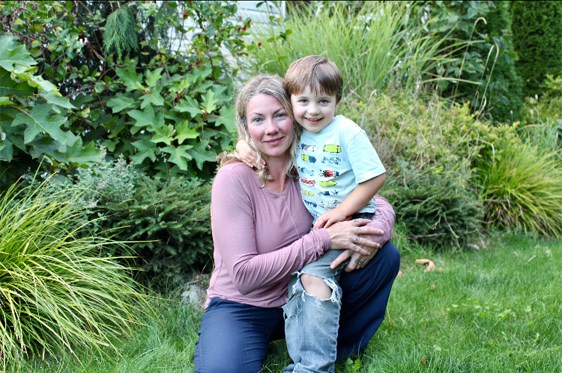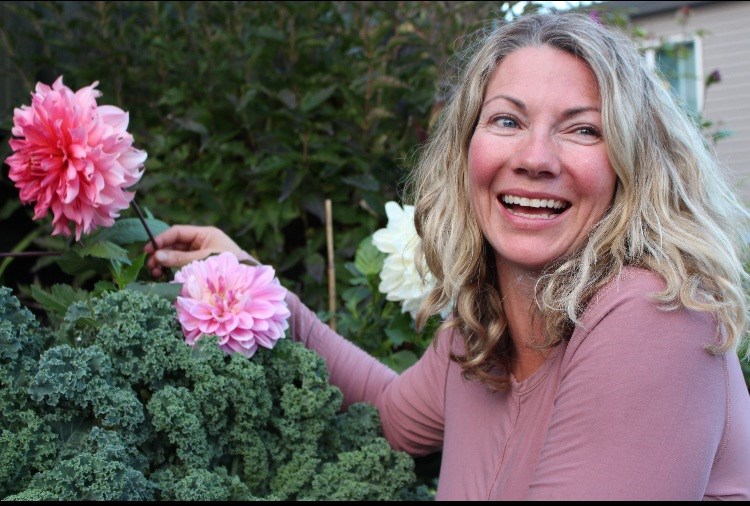In a tumultuous year of ups and downs, one shining aspect was seeing the number of people around Squamish pick up their trowels and try their hands at gardening. I wanted to share a few tips on how to put your garden to bed.
If you’re expecting an excessive clean and overhaul, then hit the brakes, cowboy.
There are several reasons to hold off on an overzealous cutback. Aside from looking unsightly and barren, all of those wonderful pollinators and good insects that you’ve worked so hard to bring to your yard will be gone now as well.
It turns out that the best thing you can do is to not do much at all. While I still recommend cutting off diseased, and damaged plants, leaving the other plants to overwinter can be very beneficial. Your garden, even in the winter, provides a wonderful habitat of food and shelter for our animal friends. Sunflowers, sedum, echinacea, grasses, rudbeckia, and cosmos can all provide food sources for songbirds, especially during a cold, and snowy winter.
Fall mums, asters, and grasses provide cover not only for other plants, but for butterflies, and other insects who winter in them.
Hollow stalks provide winter shelter for bees, and birds will use the remaining material in the spring for new nests.
That being said, there still are things that need to be done before we tuck our gardens away for the season. For those of you growing vegetables, you might want to extend your season.
This can include cold frames, greenhouses, and hoop houses to extend your harvest time. Some people might have planted a winter harvest in the summer, and their veggies should be hitting their tweens.
This leads me to the number one thing you can do for your garden, which is to replenish it with organic matter. A healthy garden starts with healthy soil. Throughout the year nutrients have been utilized, and leached out of the soil, requiring nutrients to be added back in. Add a compost, or partially decomposed compost to your garden before the ground freezes. This will allow it to fully decompose over the winter. Compost benefits your garden in many ways. It provides energy for microorganisms, improves soil structure, encourages root development, reduces erosion, and improves the capacity of the soil for air, and water. Another part of your organic matter is your mulch.
Mulch is the layer of organic materials placed on the top of the soil as a protective cover.
Mulch helps to suppress weed germination, retain moisture, insulate the soil, and reduce erosion.
Butterfly larvae, spiders, and beneficial insects also overwinter in mulch. Your mulch will also provide cover for frogs, toads, salamanders, and other wildlife. Songbirds benefits by feeding on the insect eggs, and caterpillars.
Leaves, grass cuttings, bark chips, or straw can all be used as coverings. Just be conscious that large leaves like the broadleaf maple should be shredded into smaller pieces as they can smother your plants, and compact rather than break down. I like a six-inch mulch as a protective covering. Keep in mind that this isn’t to prevent the ground from freezing, but from the constant freezing and thawing, it will experience over the winter. Those of you comfortable in your gardens might be storing your seeds for the next year.
One thing I enjoy doing in the fall is a little record keeping. Do it now because you won’t remember come spring! What worked in your garden? What didn’t, and most importantly, what did you enjoy?
Finally, clean those tools before you tuck them away in a nice dry spot.
Scour off the rust, and re-sharpen tools where needed. I was tickled pink when someone showed me that I could clean my shovels by filling a bucket full of sand, and vegetable oil.
Plunge your shovel in multiple times, and voila! While most of us like a nice clean yard, this is a case where less is more in the long run. So, take a breather from all your hard work.
Léah MacKay is in her second year in a master gardener program and works for the District of Squamish in the horticulture department.



.png;w=120;h=80;mode=crop)
